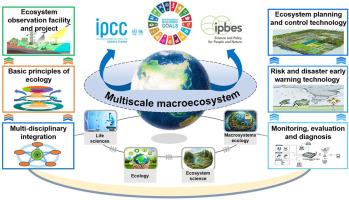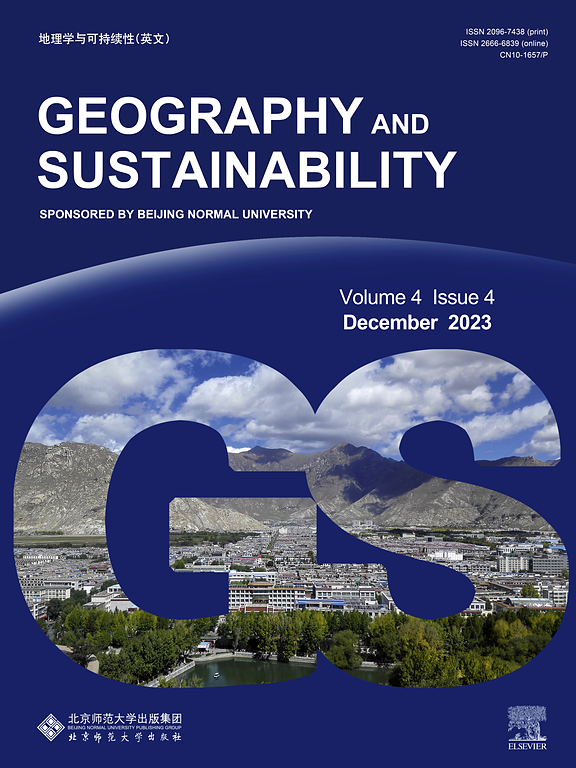宏观系统生态学:当代生态系统科学的新引擎和前沿
IF 8
1区 环境科学与生态学
Q1 GEOGRAPHY, PHYSICAL
引用次数: 0
摘要
生态系统是由自组织和人为调节共同形成的复杂系统,是水、土地、气候、生物群和人类活动之间动态相互作用的产物。作为人类福祉的基础栖息地,它们提供了包括生态产品、自然资源、文化价值和宜居环境在内的基本服务。在全球变化加速、环境压力加大、学科整合深入的背景下,生态系统科学正进入一个转型发展时期。本研究确定了以大规模生态过程原则为基础的宏观系统生态学,作为推动生态系统科学未来的关键框架。我们提出了一个综合的理论、认识论、工程和技术体系来支持这一演变,并回顾性地考察了宏观系统生态学的起源和科学使命。系统地概述了核心问题、实际应用、研究对象、范例和方法系统。此外,我们阐明了多学科原则,认识论框架和公理系统,支撑了宏观系统生态学的连贯结构。总之,这些组成部分为推进可持续生态系统管理的理论认识和实践创新提供了战略指导。本文章由计算机程序翻译,如有差异,请以英文原文为准。

Macrosystems ecology: A new engine and frontier in contemporary ecosystem science
Ecosystems are complex systems shaped by both self-organization and anthropogenic regulation, emerging from the dynamic interplay among water, land, climate, biota, and human activities. As the foundational habitat for human well-being, they provide essential services including ecological goods, natural resources, cultural value, and livable environments. Amid accelerating global change, intensifying environmental pressures, and deepening disciplinary integration, ecosystem science is entering a period of transformative development. This study identifies macrosystems ecology, grounded in the principles of large-scale ecological processes, as a pivotal framework for driving the future of ecosystem science. We propose an integrated theoretical, epistemological, engineering and technological system to support this evolution, and retrospectively examine the origins and scientific mission of macrosystems ecology. Core questions, practical applications, research subjects, paradigms, and methodological systems are systematically outlined. In addition, we articulate the multidisciplinary principles, epistemological framework, and axiomatic system that underpin a coherent structure for macrosystems ecology. Together, these components offer strategic guidance for advancing both theoretical understanding and practical innovation in sustainable ecosystem management.
求助全文
通过发布文献求助,成功后即可免费获取论文全文。
去求助
来源期刊

Geography and Sustainability
Social Sciences-Geography, Planning and Development
CiteScore
16.70
自引率
3.10%
发文量
32
审稿时长
41 days
期刊介绍:
Geography and Sustainability serves as a central hub for interdisciplinary research and education aimed at promoting sustainable development from an integrated geography perspective. By bridging natural and human sciences, the journal fosters broader analysis and innovative thinking on global and regional sustainability issues.
Geography and Sustainability welcomes original, high-quality research articles, review articles, short communications, technical comments, perspective articles and editorials on the following themes:
Geographical Processes: Interactions with and between water, soil, atmosphere and the biosphere and their spatio-temporal variations;
Human-Environmental Systems: Interactions between humans and the environment, resilience of socio-ecological systems and vulnerability;
Ecosystem Services and Human Wellbeing: Ecosystem structure, processes, services and their linkages with human wellbeing;
Sustainable Development: Theory, practice and critical challenges in sustainable development.
 求助内容:
求助内容: 应助结果提醒方式:
应助结果提醒方式:


